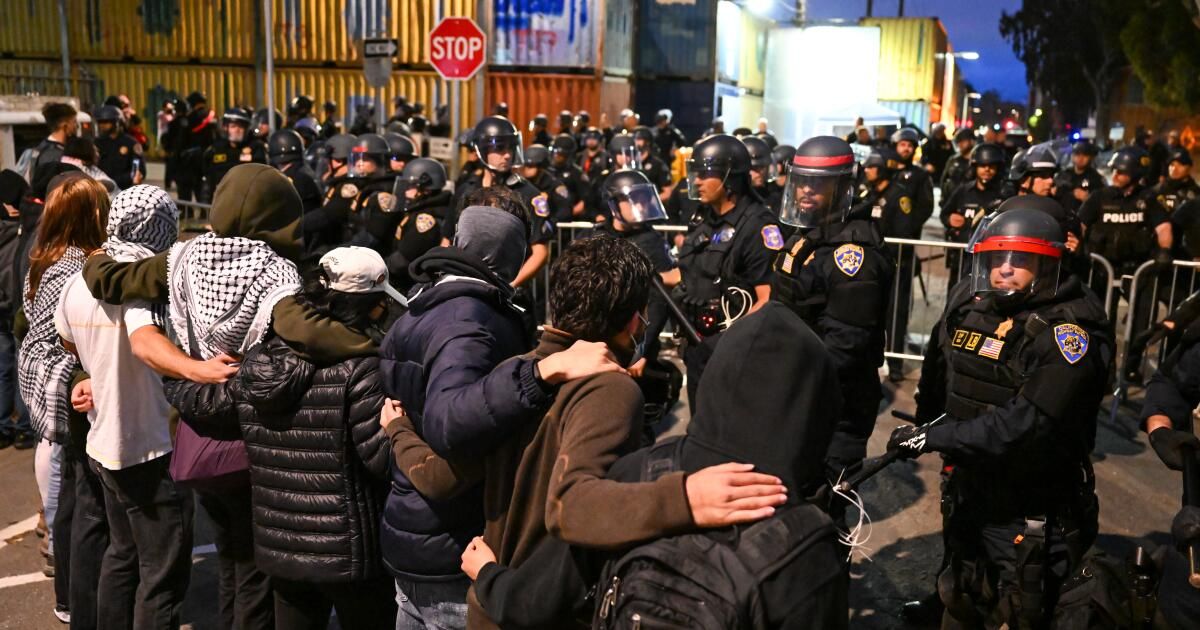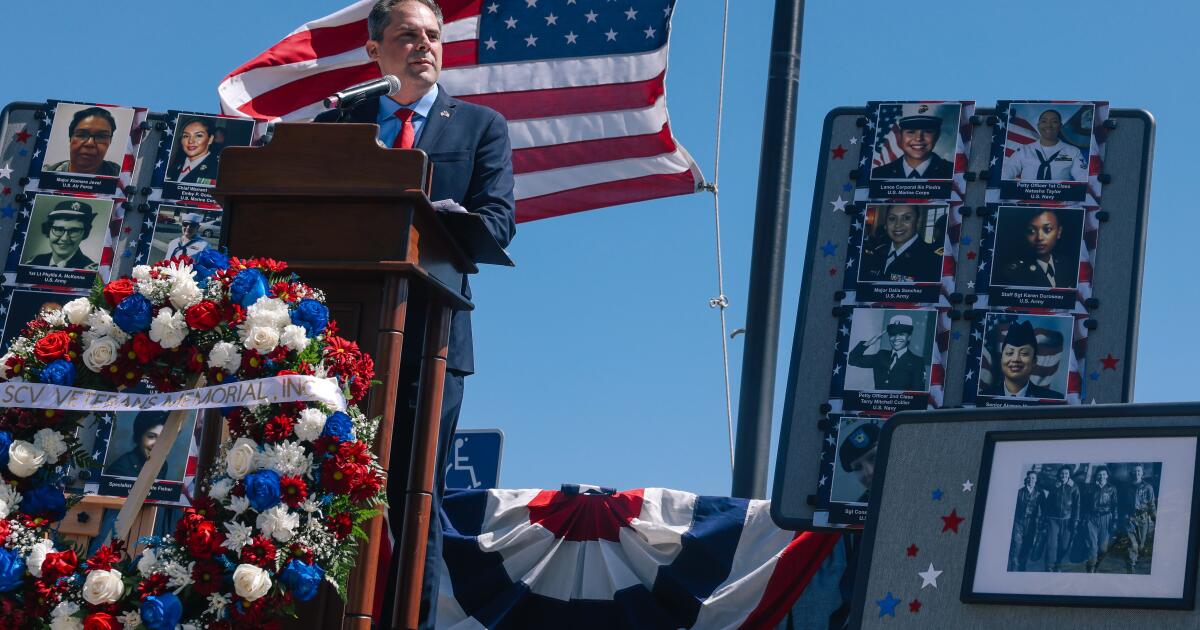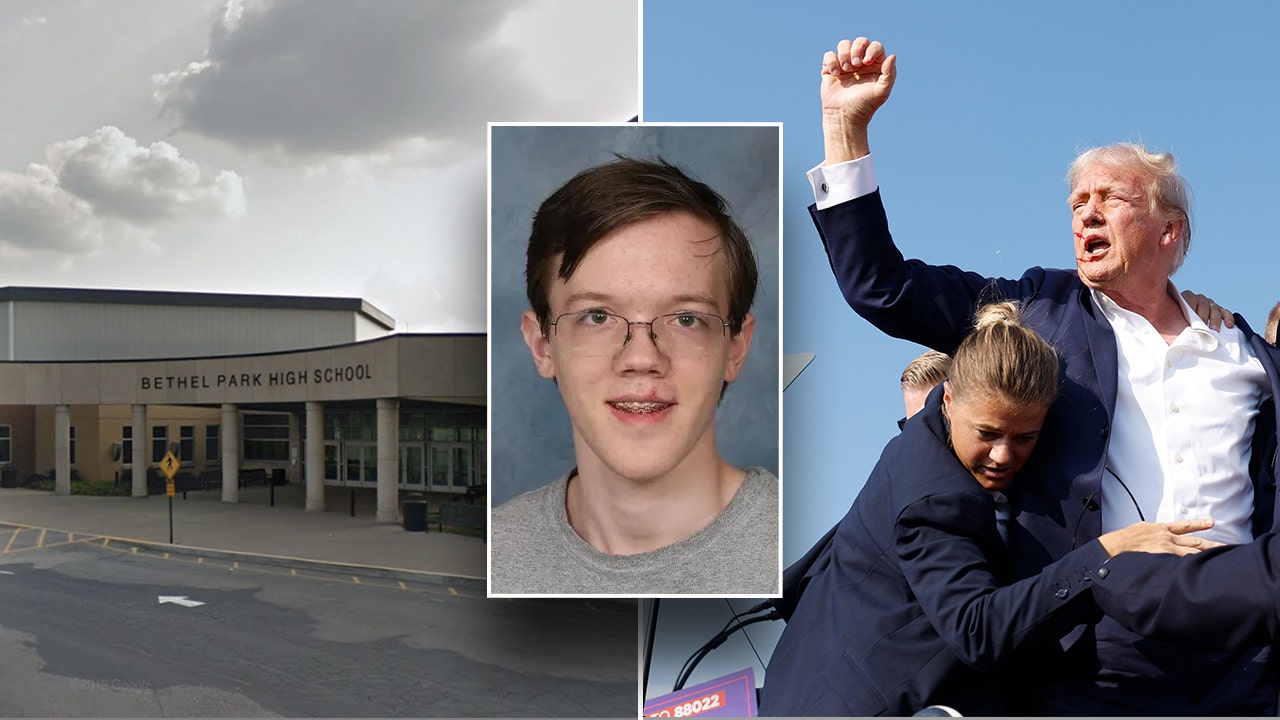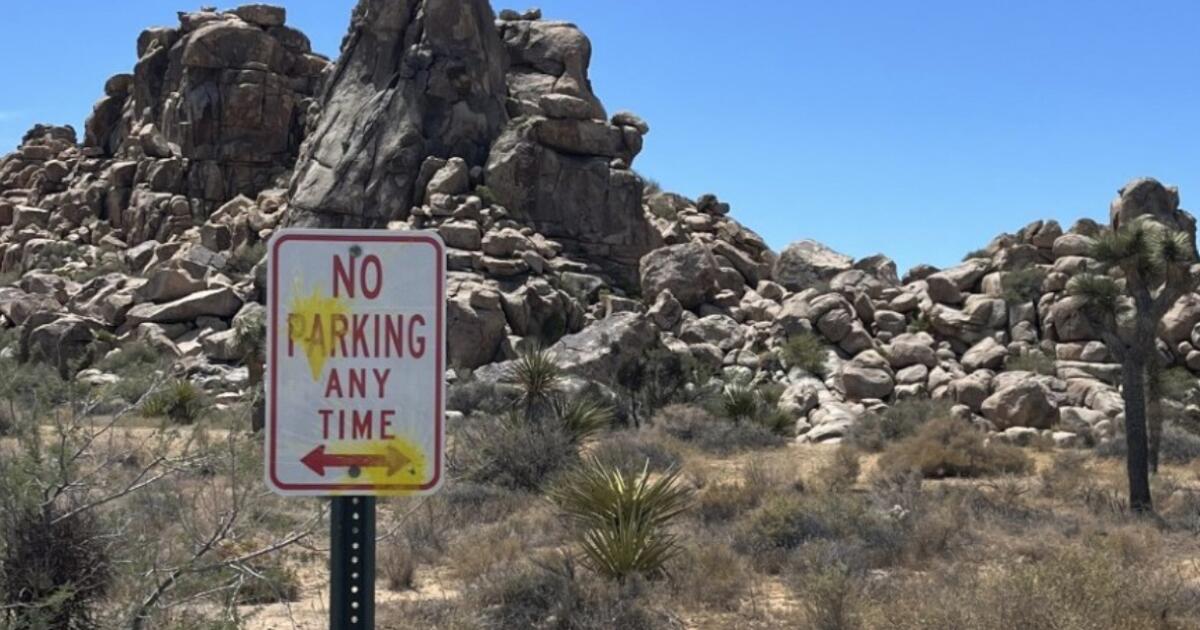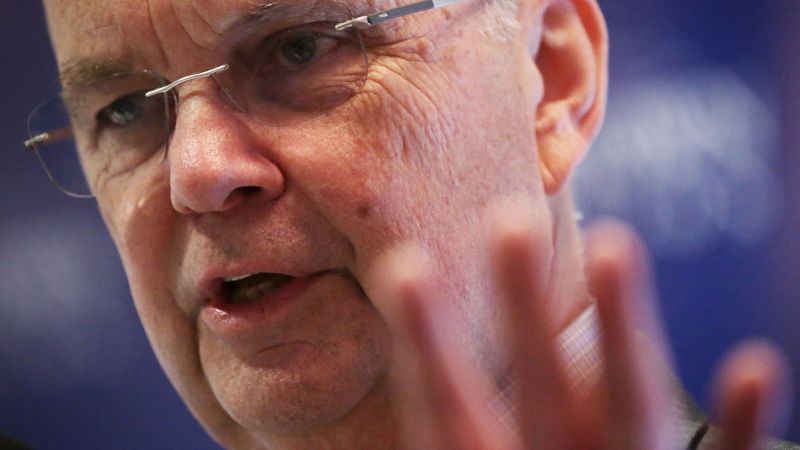Even after UC Berkeley officials reached a deal with student leaders at the university's former pro-Palestinian camp, a group of protesters took over an abandoned building on campus Wednesday and some were later arrested.
Protesters occupied Anna Head Alumnae Hall, a dilapidated building on campus that was unofficially renamed in honor of a Palestinian boy killed this year during Israeli military operations in Gaza. The takeover of the building began Wednesday, a day after protesters removed their tents from one of the largest and longest encampments in the country following an agreement with university officials.
About 24 hours after the group occupied the building, throwing Palestinian banners and flags from windows and setting up tents outside, police in riot gear from nearly 20 agencies moved in Thursday night and forced protesters out.
There were 12 people arrested, one of whom was an enrolled student, UC Berkeley spokesman Dan Mogulof said in a statement.
He said the confrontation between officers and protesters turned violent as protesters blocked the entrance to the room with plywood and shields, while some used crowbars to hit officers and resist arrest. No officers were injured because they were wearing helmets, he said. The Times could not independently confirm whether crowbars were used to hit the officers.
It was not immediately clear if any of those arrested were injured.
Local police and California Highway Patrol officers keep protesters away with barricades in Berkeley.
(Carlos Ávila González / San Francisco Chronicle)
The 12 were arrested on suspicion of robbery, vandalism and conspiracy, Mogulof said. He said additional charges may be added as the University of California Police Department investigates and reviews the video.
Wednesday's protest action coincided with the 76th anniversary of the Nakba, an Arabic word meaning “catastrophe,” which refers to the approximately 700,000 Palestinians who fled or were forced from their homes during the 1948 war that surrounded the creation of Israel.
Many UC Irvine students also commemorated the day's history with the building's takeover.
A large group surrounded and blocked a physical sciences room on Wednesday, but police intervened much earlier and arrested 47 people after forcing the group to leave campus and dismantle their camp. UCI administrators have not reached an agreement with protesting students as Berkeley officials have.
There, university officials almost immediately called the takeover of the building, as it unfolded, “an active crime scene.”
“It's not nonviolent civil disobedience,” Mogulof said, adding that protesters were “vandalizing an unsafe, boarded-up, fire-damaged building.”
University officials attempted to draw a distinction between protesters with whom administrators reached an agreement on Tuesday and the group that took over the abandoned building on Wednesday.
As part of the Berkeley deal reached Tuesday, Chancellor Carol Christ said she would begin a discussion about the university's investments in and possible divestment from arms companies, as well as issue a letter calling for an immediate ceasefire in Gaza. . The move aligned the university with at least four others in the state and several across the country that have forged agreements with activists to end campus encampments that some Jewish students said included anti-Semitic signs and chants.
But this week at least one group of pro-Palestinian students rejected the university's distinction between protest groups.
In a “statement of solidarity” with the group occupying the abandoned room, which they had renamed “House of Hind” in honor of Hind Rajab, a six-year-old Palestinian girl who died during the Israeli attacks on Gaza in January, The UC Berkeley Graduate Students for Justice in Palestine shared a statement during the protest saying they “reject and condemn attempts to…fragment and divide our Palestine movement.”
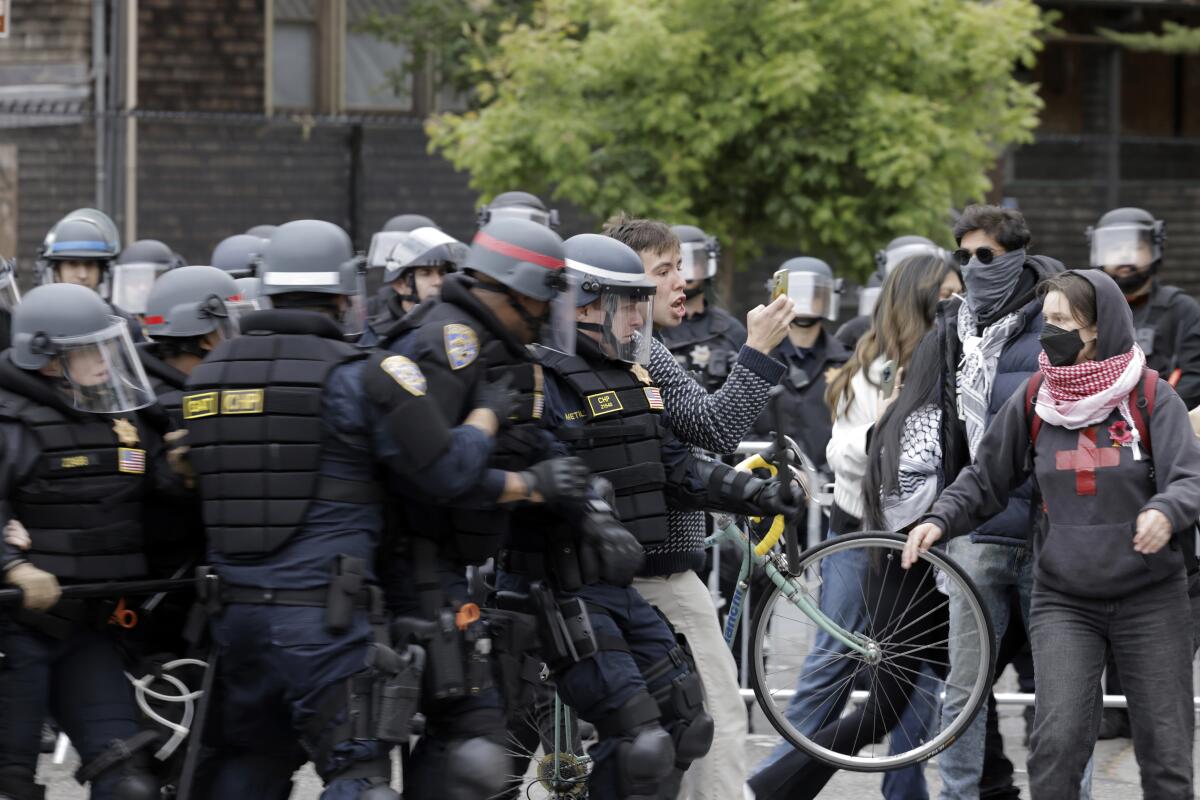
Law enforcement officers encounter protesters as officers move in to remove protesters inside UC Berkeley's Anna Head Alumnae Hall.
(Carlos Ávila González / San Francisco Chronicle)
“We reject the 'good protester' versus 'bad protester' and 'inside' and 'outside' dichotomy,” the post said, calling on the university administration to avoid responding to the occupation with police.
Hours later, dozens of helmeted officers confronted protesters, according to photographs and videos from the scene.
The arrests in Berkeley weren't the only police investigations in the Bay Area this week.
In Oakland, at the University of California president's office, officials are investigating recent vandalism and property damage for which a pro-Palestinian group appears to have taken credit.
On Sunday, Oakland police officers responded to the building shortly after midnight, where they found broken windows and paint on the walls, Oakland police spokesman Paul Chambers said. He said it is being investigated as a hate-related incident.
Ryan King, a spokesman for the UC president's office, confirmed that the building was marked with graffiti and had other damage. He declined to comment on the motive for the attack.
An anonymous post on a Bay Area blog on Tuesday took credit for the vandalism and said it was done in “solidarity with the Palestinian Resistance.”

